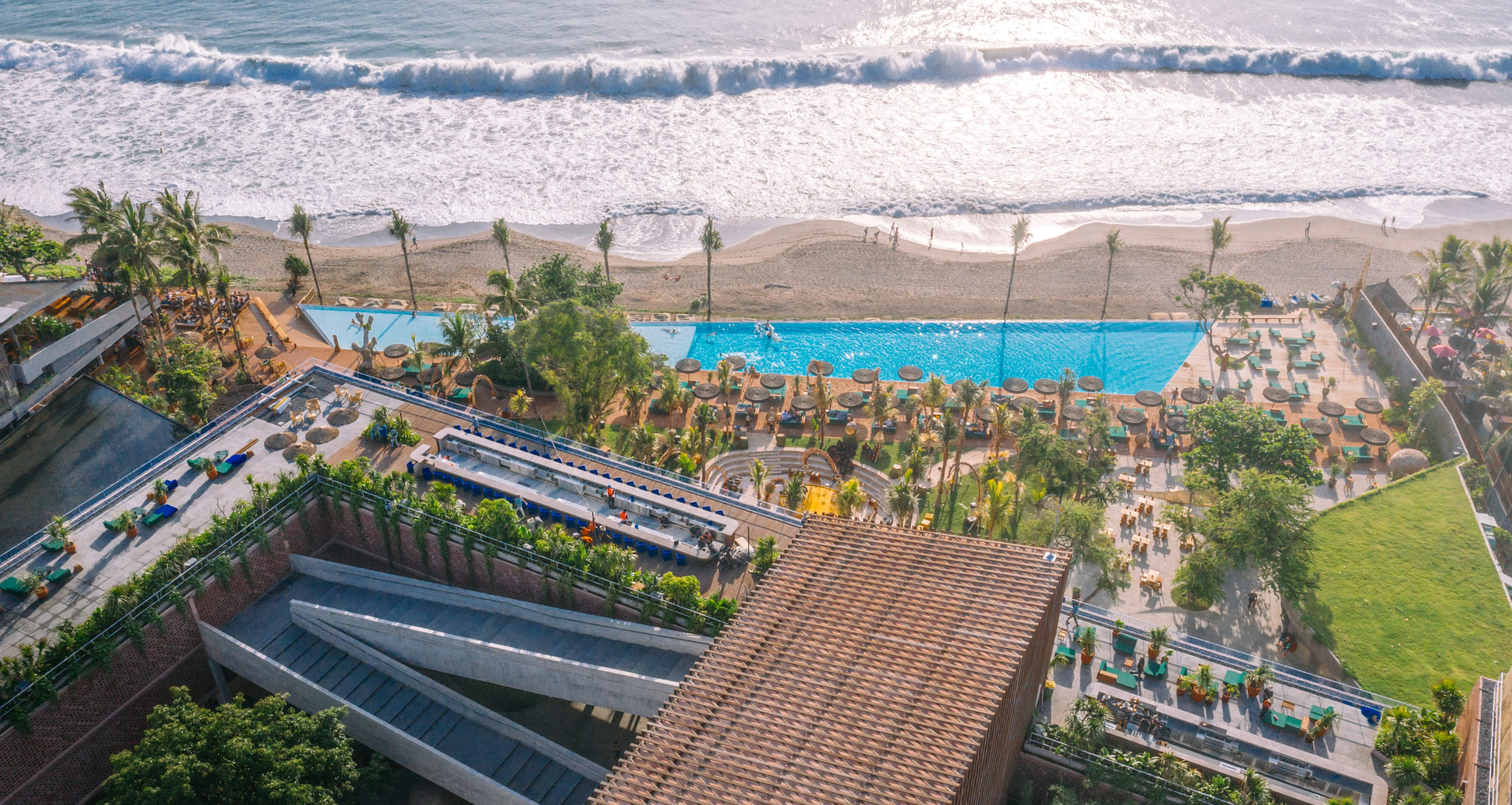Potato Head Studios wants to ‘transcend hospitality’ with a hotel experience centered around creativity, culture and sustainability. Rose Dykins reports
This year will see the roll-out of the final phase of Potato Head Studios in Bali – a hotel that sits within the Desa Potato Head creative campus in Seminyak, which already features the Katamama Suites and a signature beach club.
The Potato Head Studios hotel will comprise 168 guest rooms, a farm-to-table (and zero-waste) restaurant and several bars. 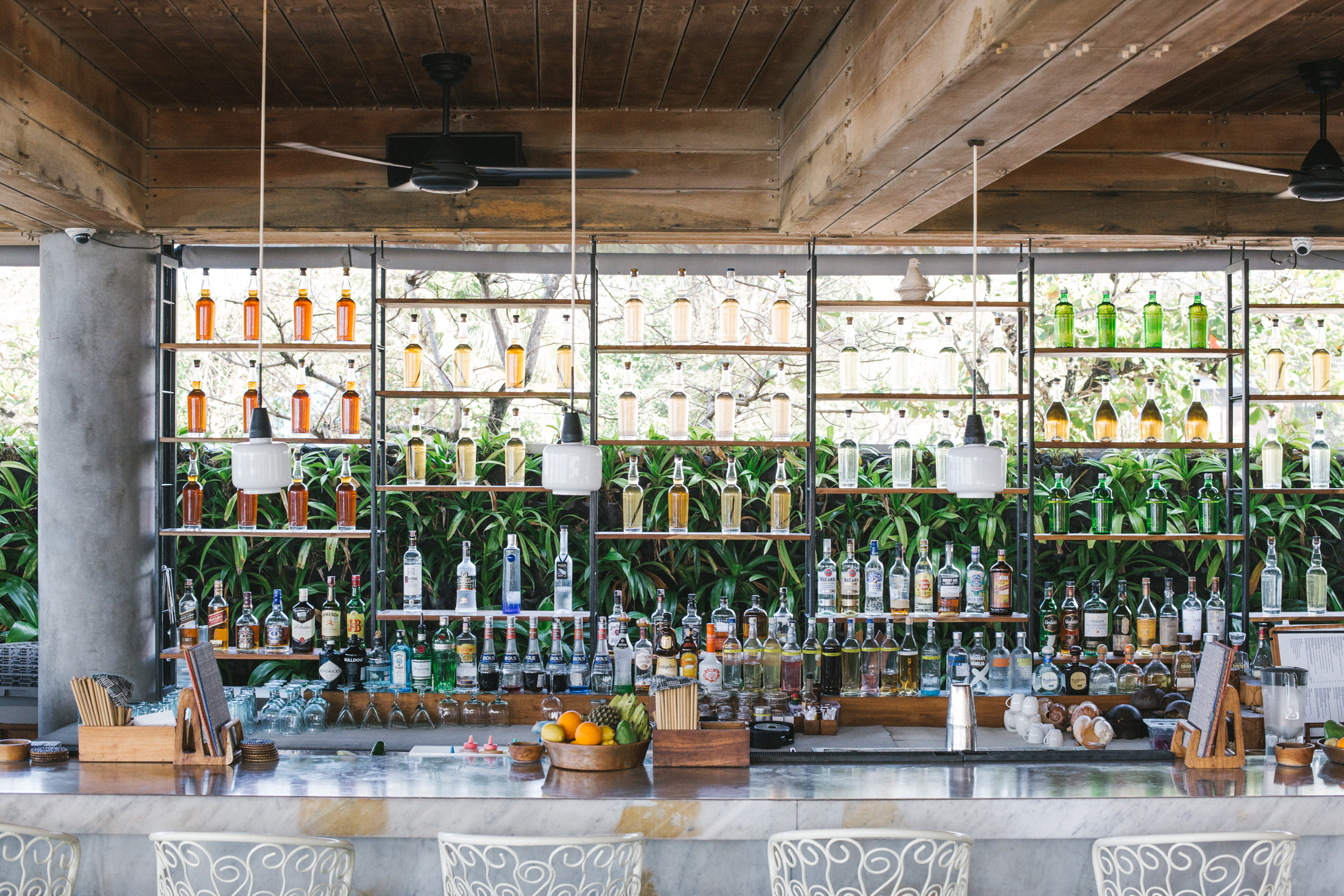 The hotel and the new creative village were both originally slated to open in May 2020 but were delayed due to the pandemic.
The hotel and the new creative village were both originally slated to open in May 2020 but were delayed due to the pandemic. There will also be gallery space, an environmentally friendly kids’ club, an amphitheatre, rooftop areas, a beachfront pool, a music studio and a subterranean disco.
There will also be gallery space, an environmentally friendly kids’ club, an amphitheatre, rooftop areas, a beachfront pool, a music studio and a subterranean disco.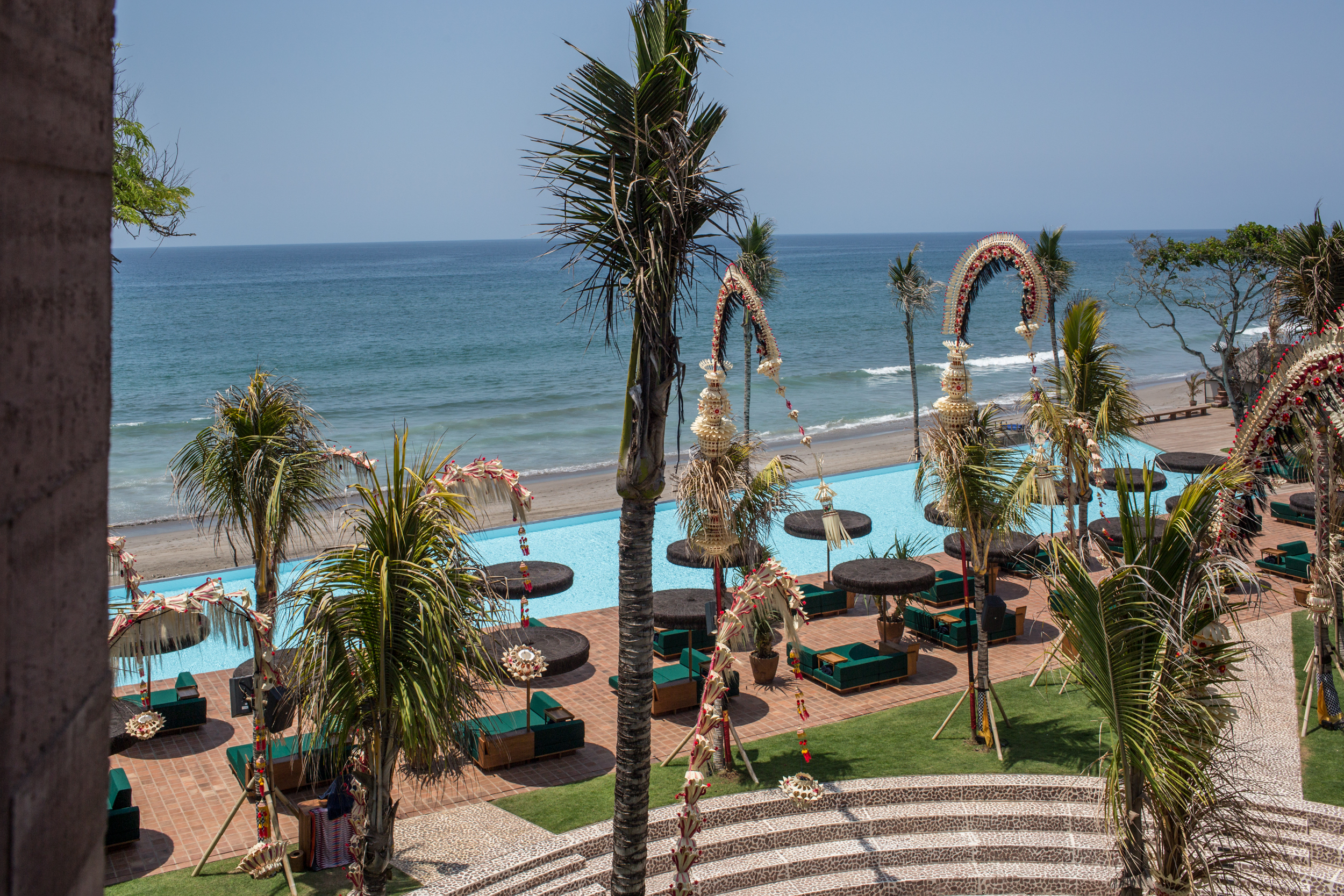 Sustainability will be core to the guest experience. When each person checks in at the resort they receive a zero-waste kit complete with a water bottle, RPET tote bag, bamboo straw and essentials such as refillable sunder, after-sun care and insect repellent.
Sustainability will be core to the guest experience. When each person checks in at the resort they receive a zero-waste kit complete with a water bottle, RPET tote bag, bamboo straw and essentials such as refillable sunder, after-sun care and insect repellent.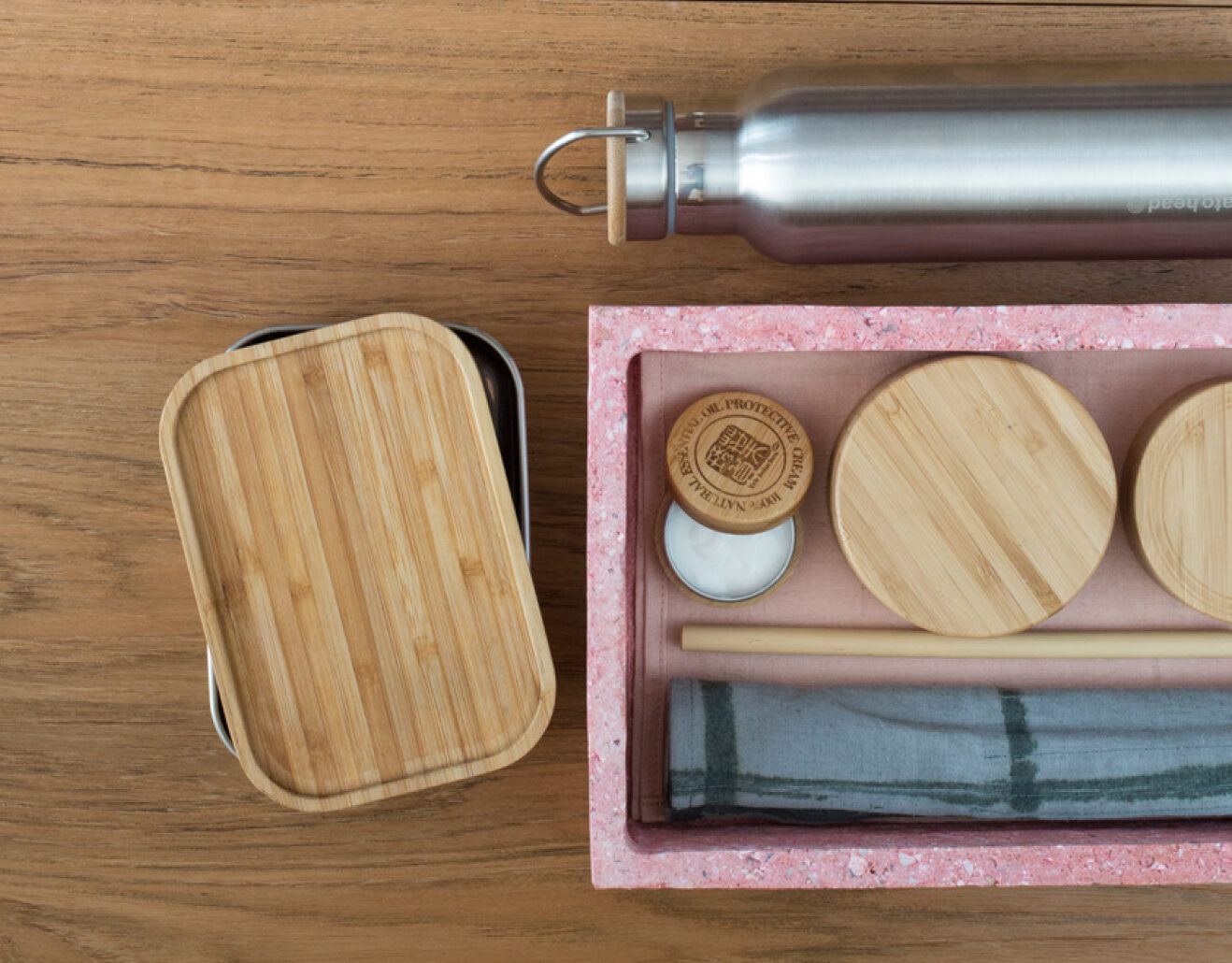 Even the slippers provided for guests are fully biodegradable – they are made from coconut husks, woven palm leaves, fabric off-cuts and pond reeds.
Even the slippers provided for guests are fully biodegradable – they are made from coconut husks, woven palm leaves, fabric off-cuts and pond reeds. Shampoo, conditioner, body wash, bar soap and bath salts are from Bali’s all-natural fragrance house, Sensatia Botanicals.
Shampoo, conditioner, body wash, bar soap and bath salts are from Bali’s all-natural fragrance house, Sensatia Botanicals.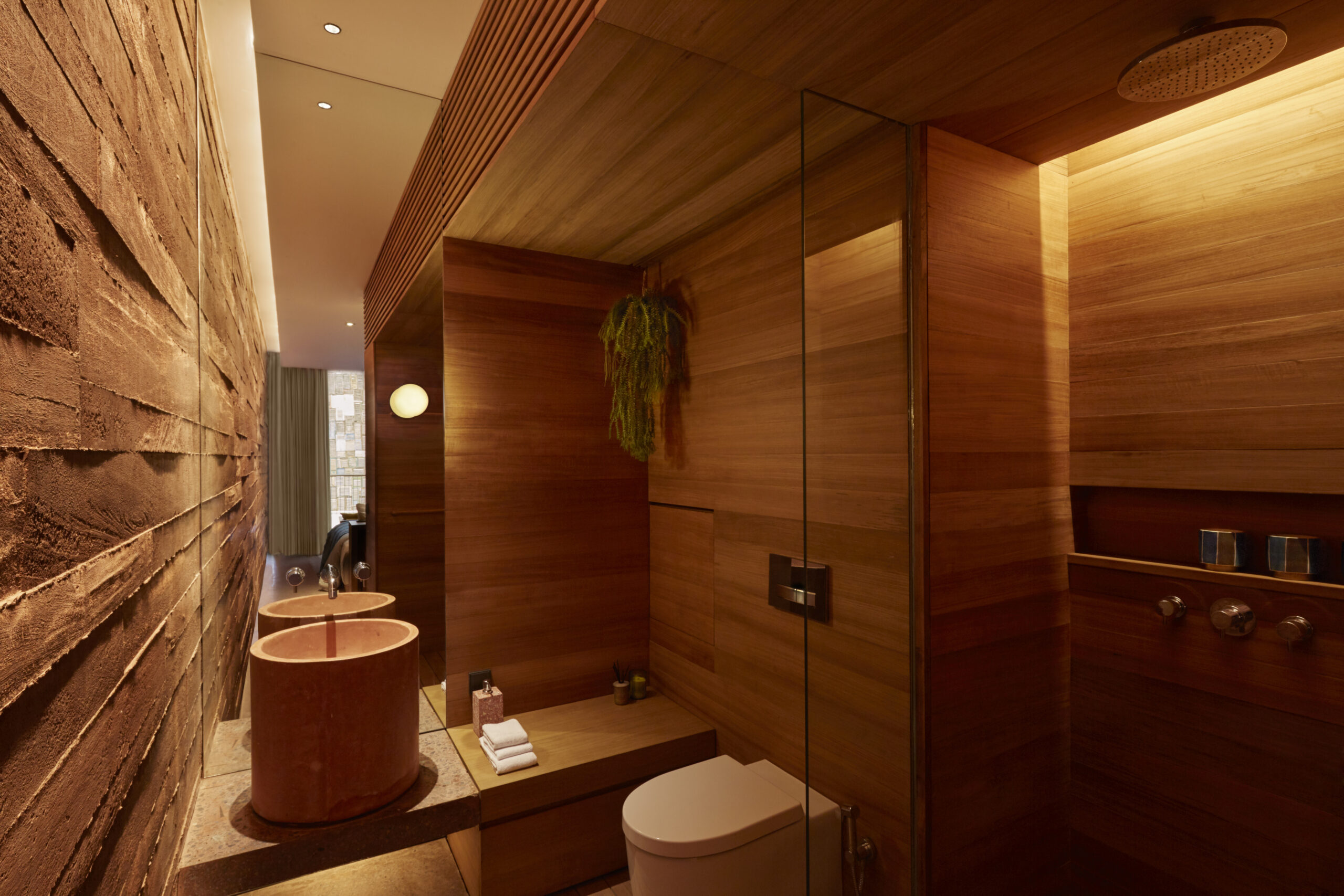 Desa Potato Head is designed to rethink a typical “bubble-like” luxury resort by integrating with the local community and actively involving guests in the culture they are visiting.
Desa Potato Head is designed to rethink a typical “bubble-like” luxury resort by integrating with the local community and actively involving guests in the culture they are visiting.
Potato Head’s hybrid hotel-village concept features areas accessible to the public as well as international guests. These include exhibition space and a plaza for hosting cultural events.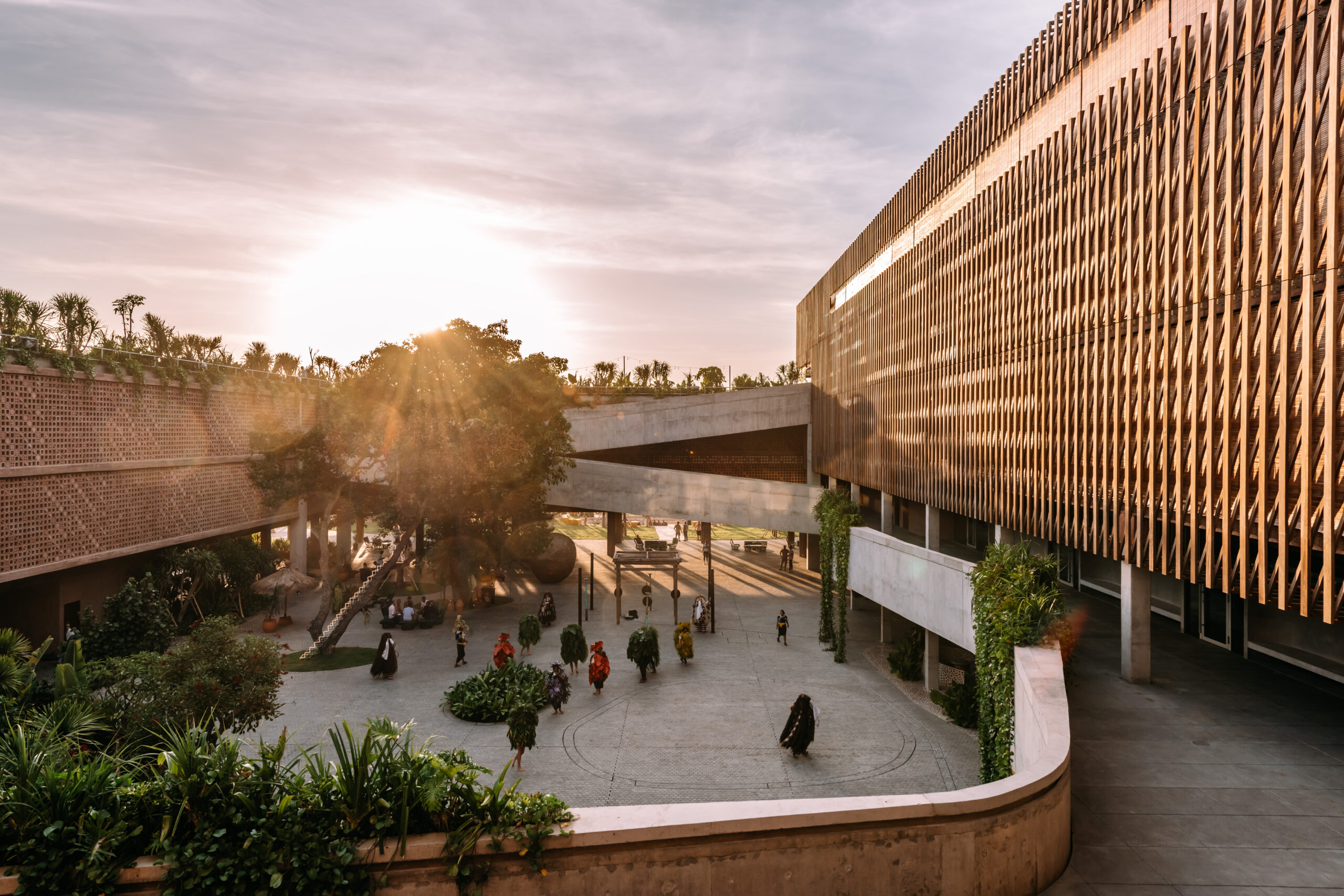
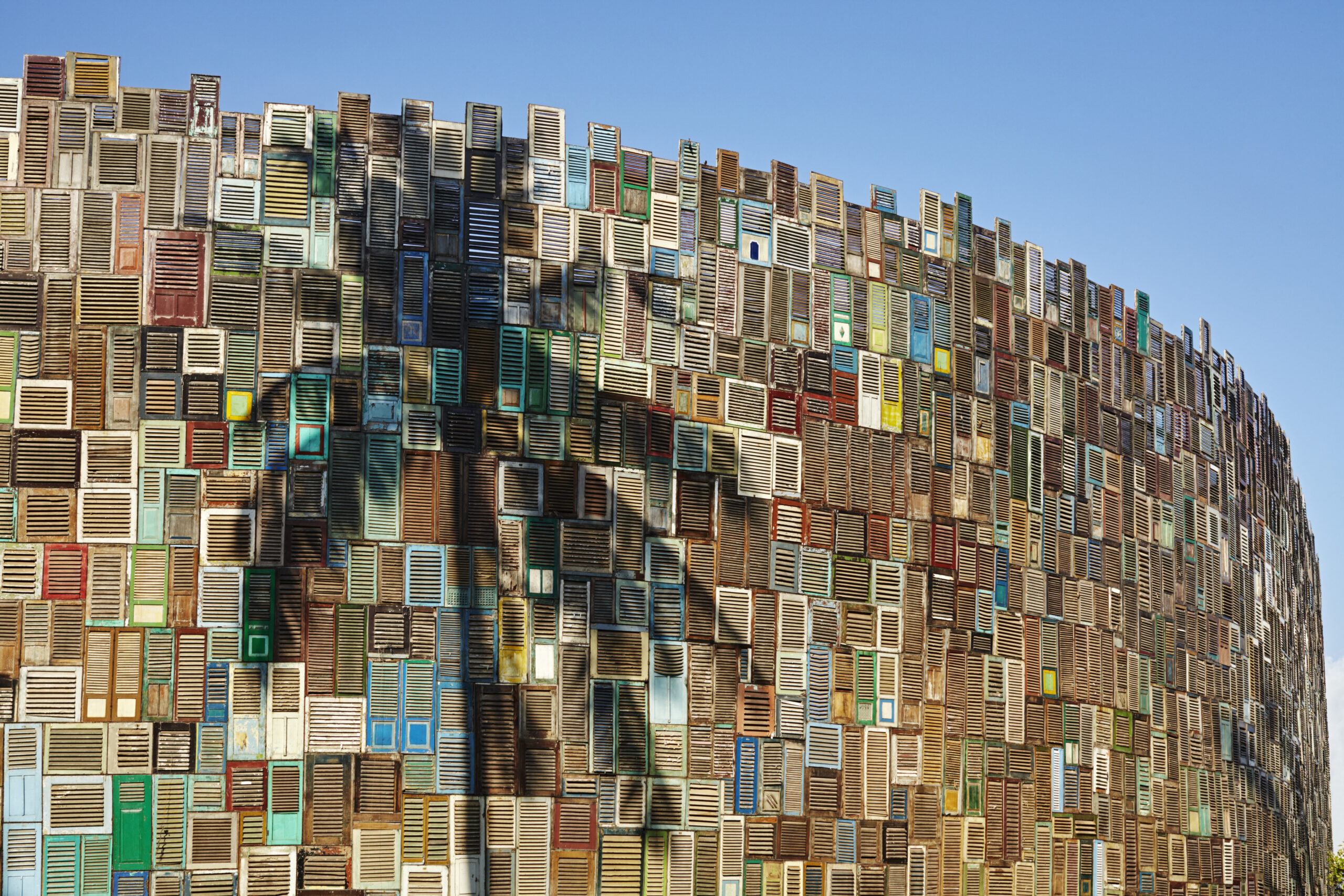 A destination in itself, Desa Potato Head is described as “a place where where music, art, design, food, wellness and sustainability collide, offering a new type of holistic experience for both the local community and guests”.
A destination in itself, Desa Potato Head is described as “a place where where music, art, design, food, wellness and sustainability collide, offering a new type of holistic experience for both the local community and guests”.
Ronald Akili, founder of Potato Head, says: “At Desa Potato Head we’re not trying to change the industry, we want to create an entirely new model for it.”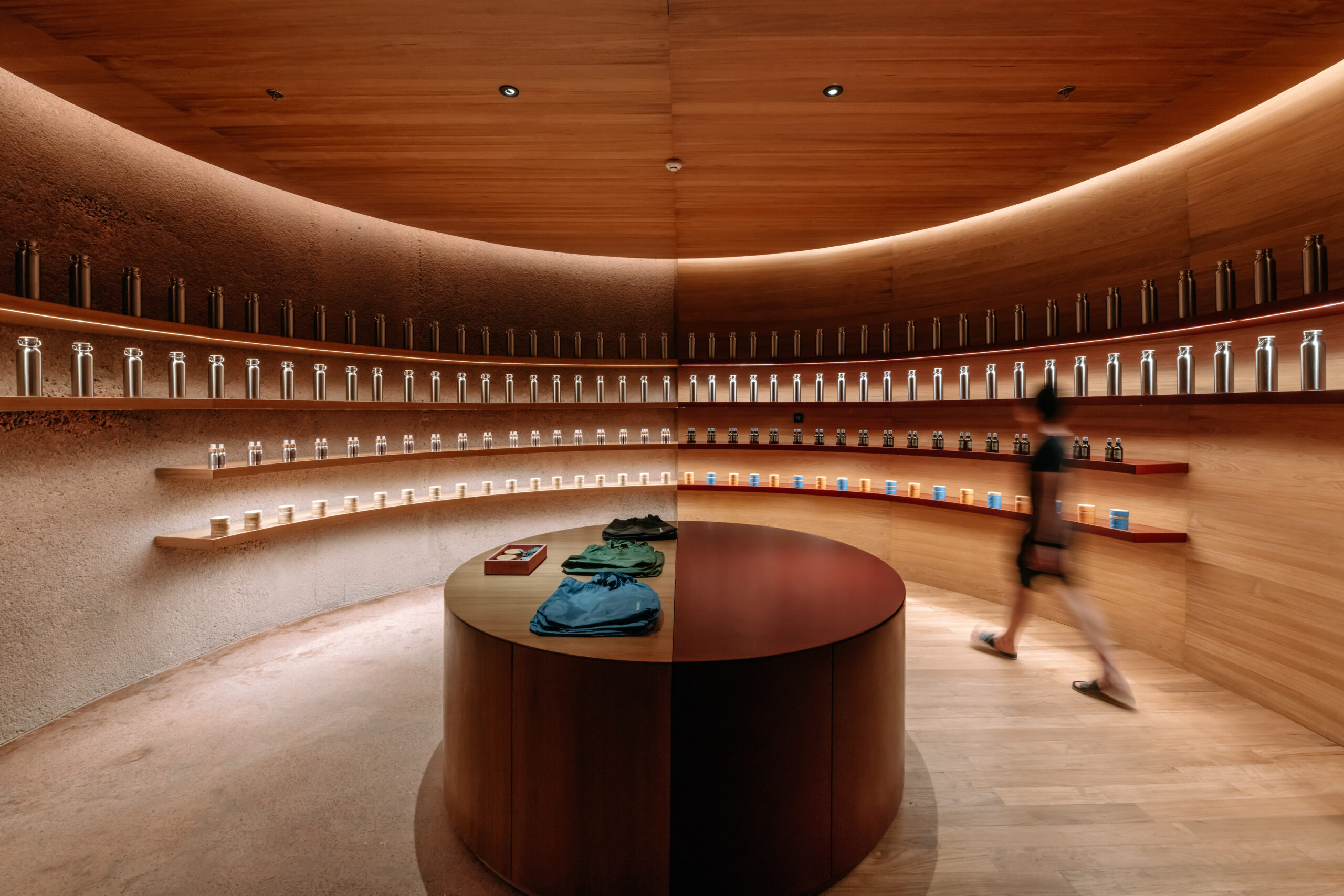 Desa Potato Head was designed in partnership with architect David Gianotten at OMA – the Dutch practice founded by REM Koolhaas.
Desa Potato Head was designed in partnership with architect David Gianotten at OMA – the Dutch practice founded by REM Koolhaas.

“The essence of Bali lies in the interaction between different cultures,” says Gianotten. “Dedicated to both guests and the community, our design for the new building encourages exchange between different kinds of users, and challenges the typical Balinese resort typology that highlights exclusivity.”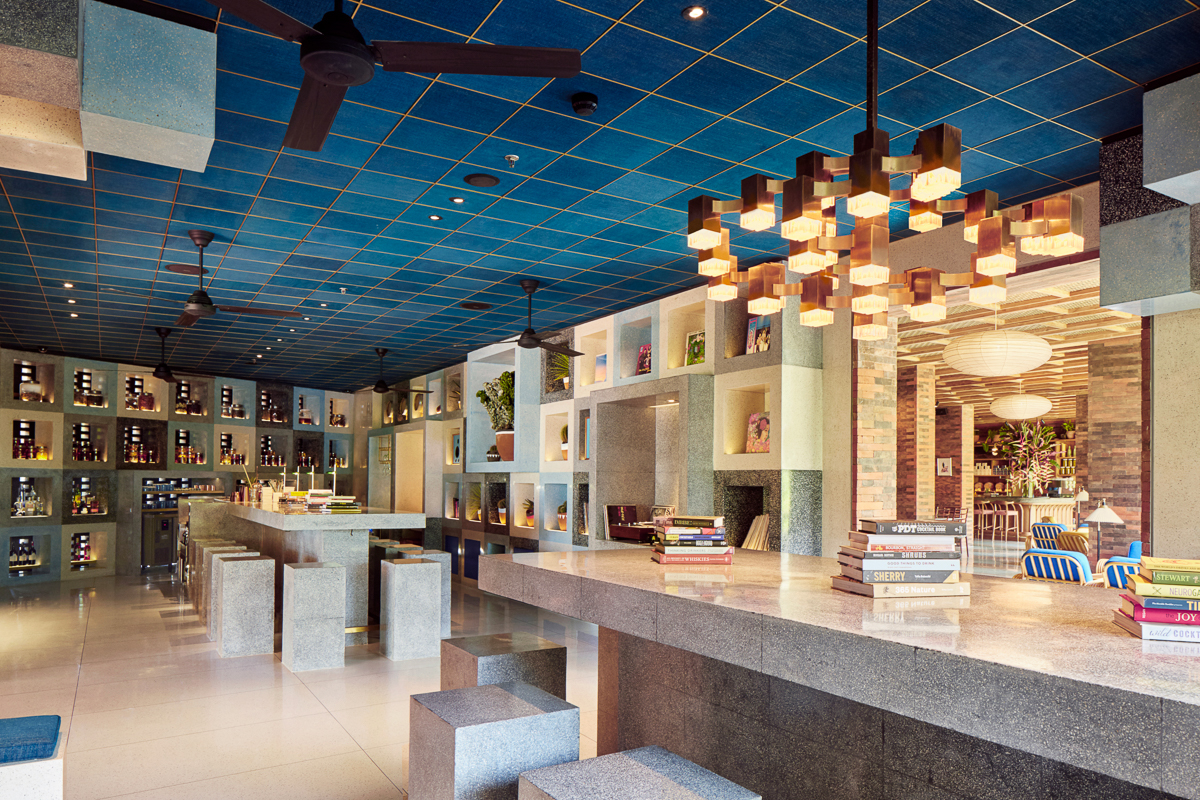 The resort will offer a programme of enriching experiences and events, including beach workouts developed by Ocho System, sound healing sessions, long-table dinners, sustainability workshops, sunset performances and music events.
The resort will offer a programme of enriching experiences and events, including beach workouts developed by Ocho System, sound healing sessions, long-table dinners, sustainability workshops, sunset performances and music events.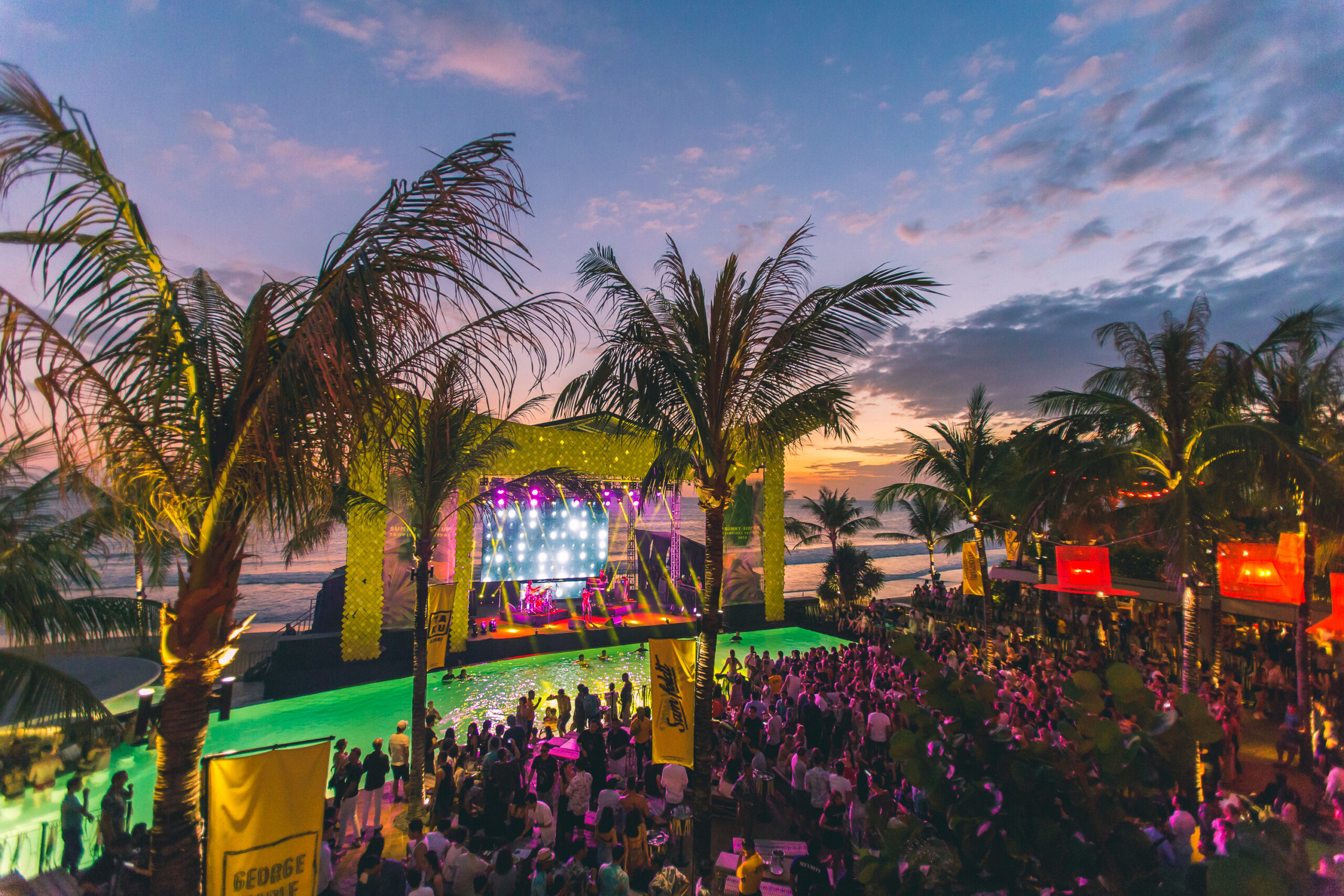 “We’d like to welcome conscious and curious minds to our visionary utopia,” says Daniel Mitchell, Potato Head’s creative director. “Visitors should leave Desa Potato Head with a more imaginative, rejuvenated mind set and we hope they return again and again.”
“We’d like to welcome conscious and curious minds to our visionary utopia,” says Daniel Mitchell, Potato Head’s creative director. “Visitors should leave Desa Potato Head with a more imaginative, rejuvenated mind set and we hope they return again and again.”
Desa Potato Head’s concept was born out of global and local design collaborations, with a strong focus on sustainability. 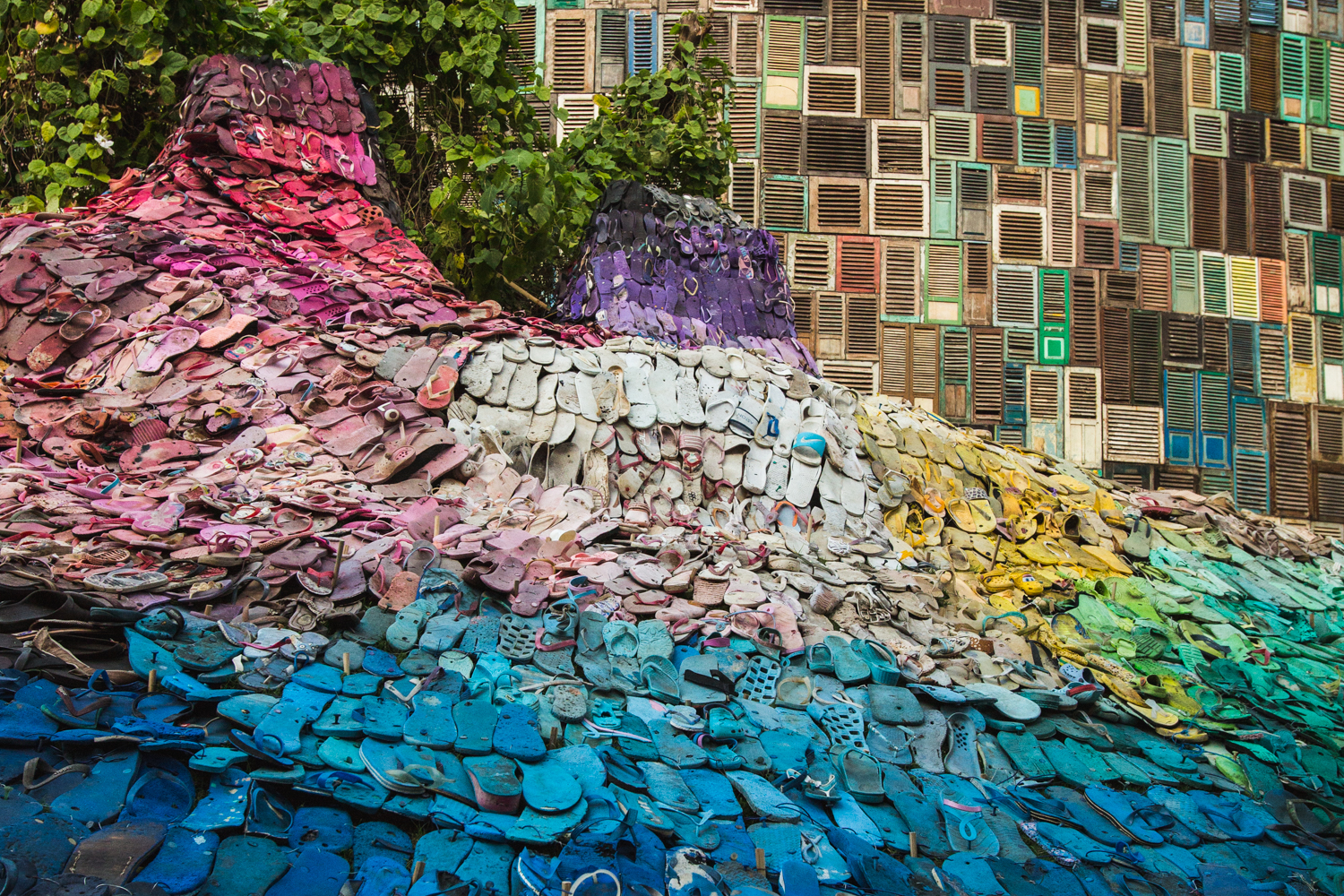 Furniture and amenities have been crafted from recycled plastics and eco-friendly materials created by British designers Max Lamb and Gaye Toogood. These have been enhanced by Balinese artisans, who have used indigenous material and techniques.
Furniture and amenities have been crafted from recycled plastics and eco-friendly materials created by British designers Max Lamb and Gaye Toogood. These have been enhanced by Balinese artisans, who have used indigenous material and techniques. 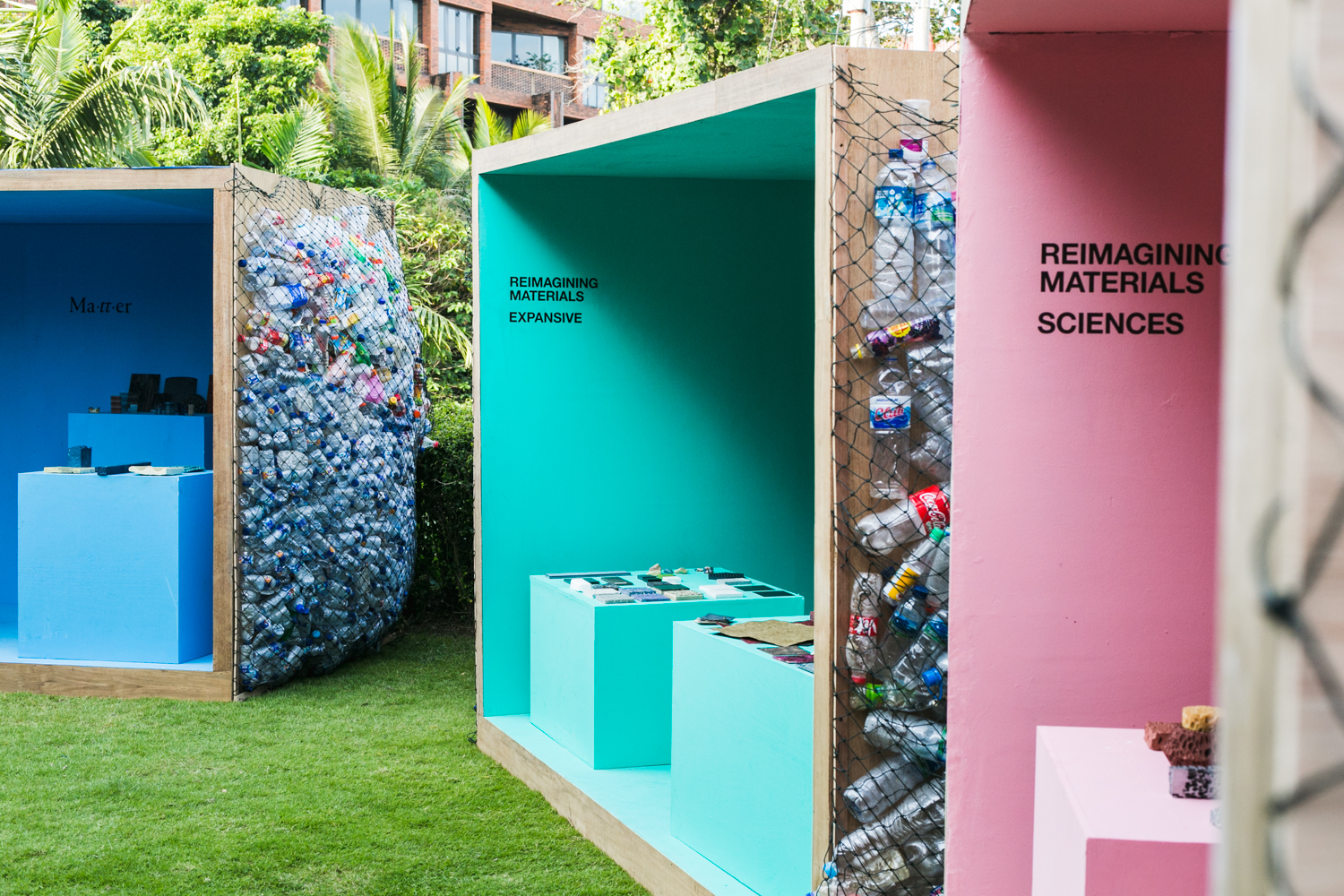 Meanwhile, the team at Potato Head’s “Sustainism” Lab are dedicated to finding circular environmental solutions to reduce waste.
Meanwhile, the team at Potato Head’s “Sustainism” Lab are dedicated to finding circular environmental solutions to reduce waste.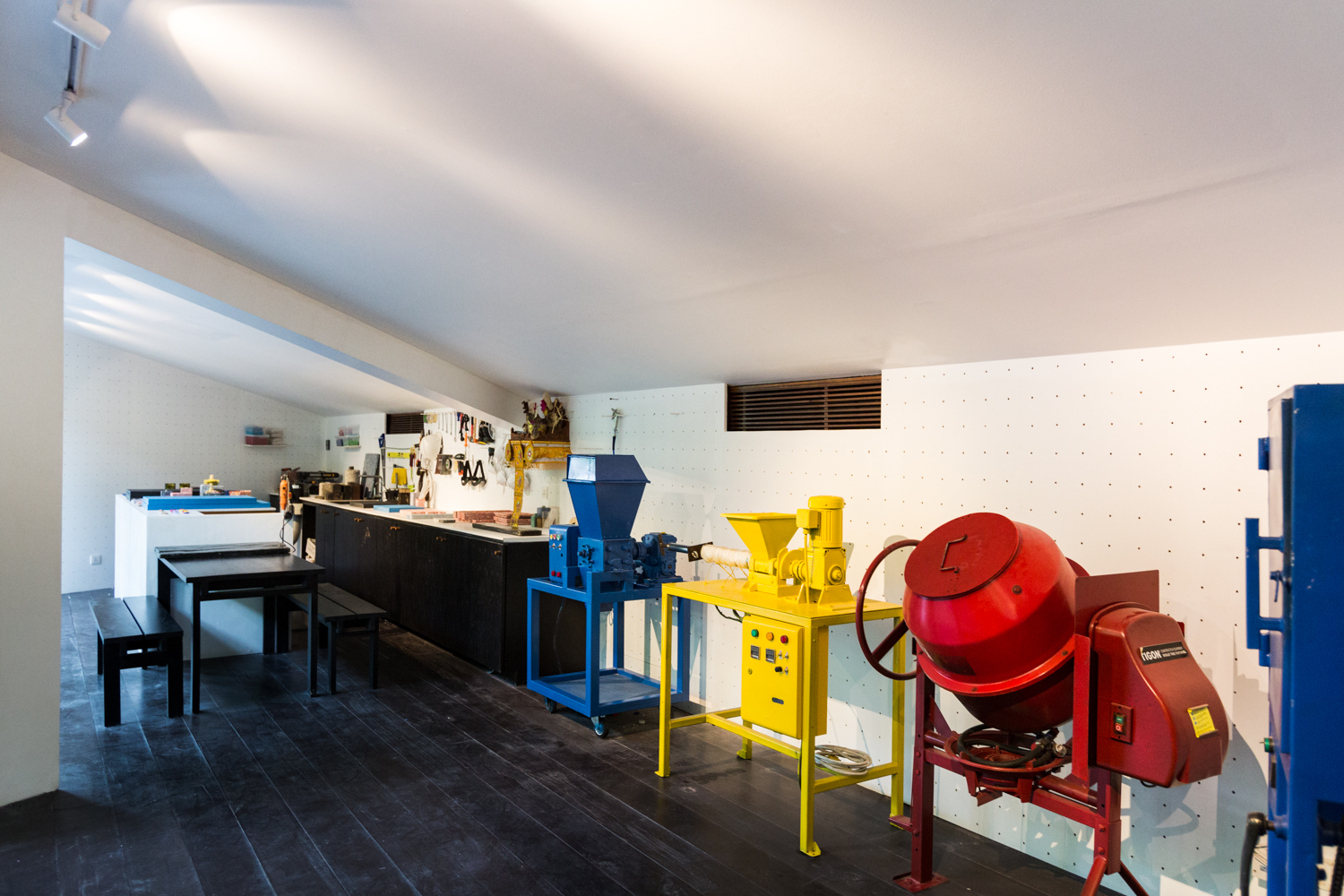 Potato Head’s guest experience is centered in community and inclusivity. The brand aims to use creativity to encourage positive change in the world, operating under the motto: “Good Times, Do Good.”
Potato Head’s guest experience is centered in community and inclusivity. The brand aims to use creativity to encourage positive change in the world, operating under the motto: “Good Times, Do Good.”
Potato Head is also working on a local farming project called Sweet Potato, which will help feed the local community and offer opportunities for volunteer work.
Because of the Covid-19 pandemic, Bali is currently closed to overseas tourists and will likely remain so until 2021.
In a press conference in August, governor of Bali, Wayan Koster, said: “Bali must not fail because it will have a negative impact on the image of Indonesia, including Bali in the eyes of the world, which could have counter-productive consequences for tourism recovery efforts.”

